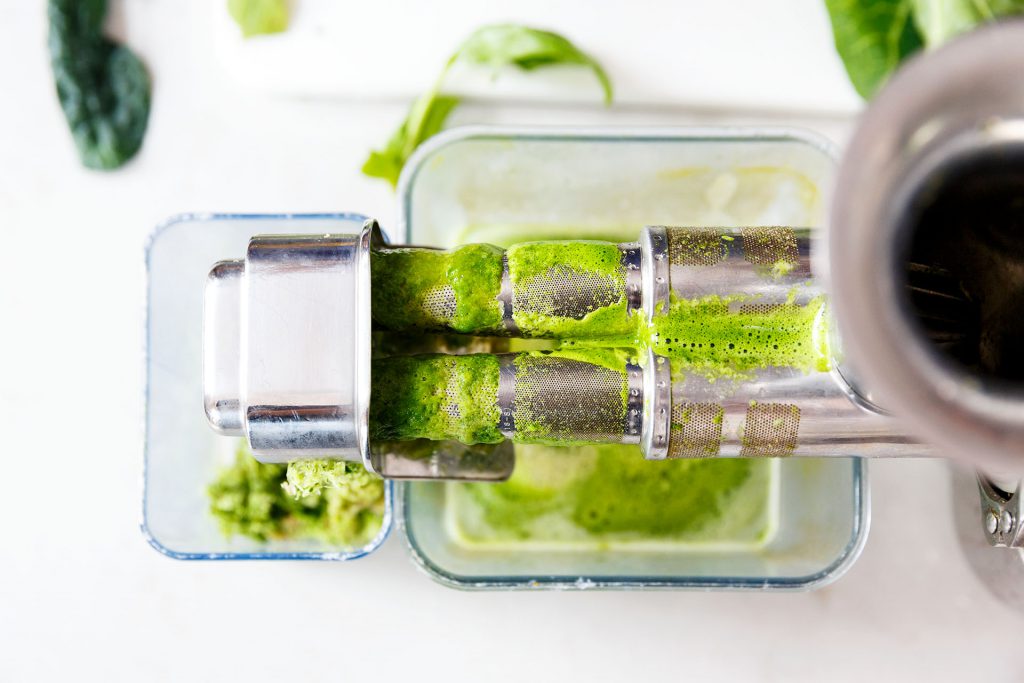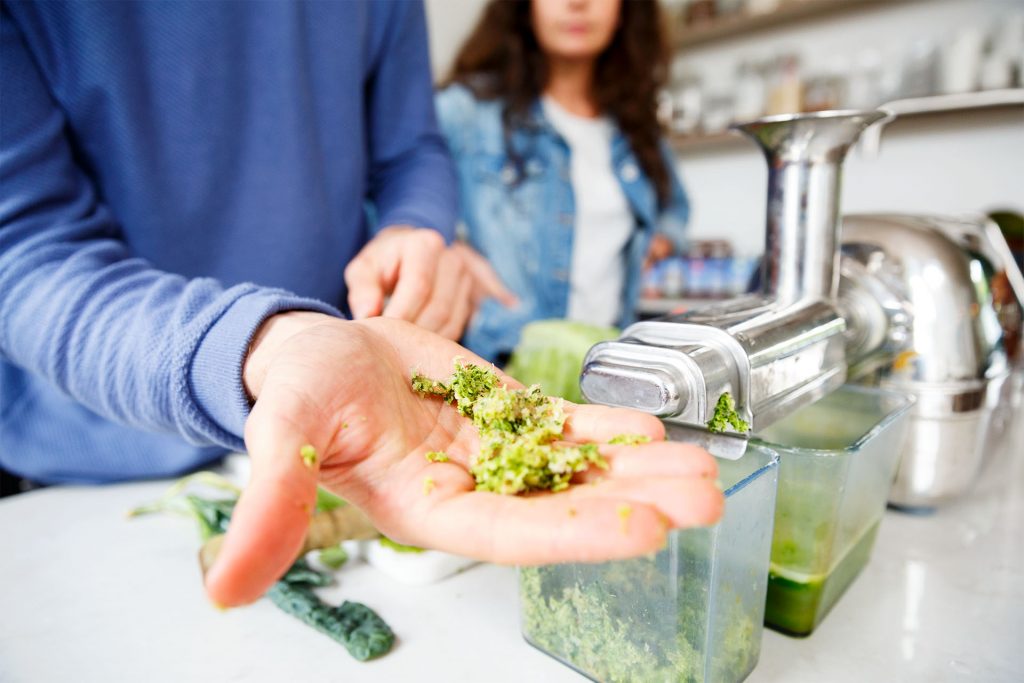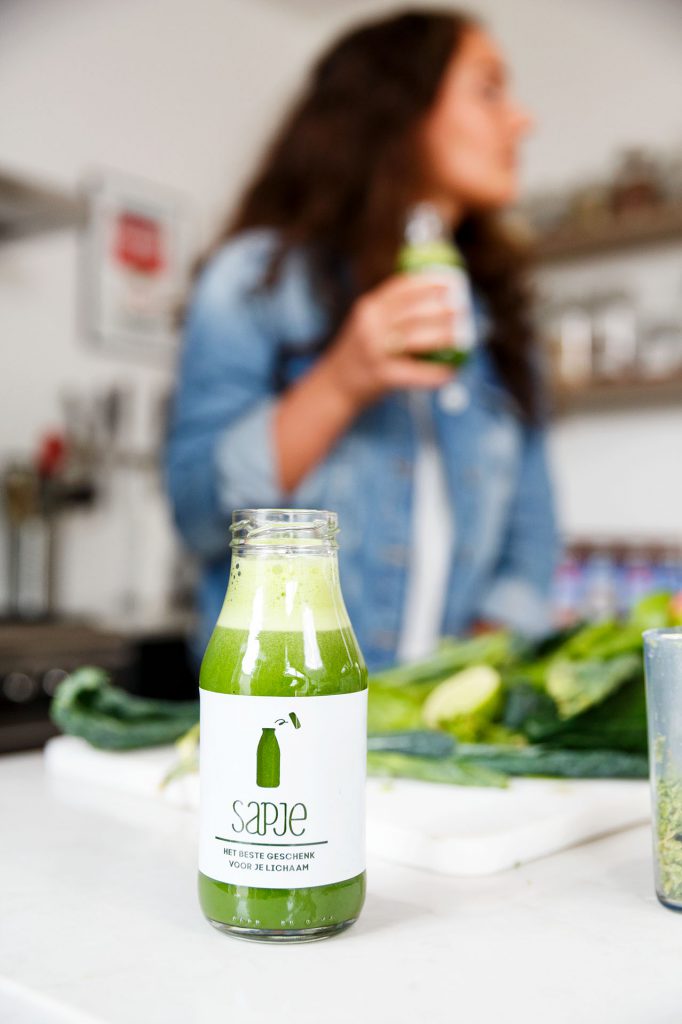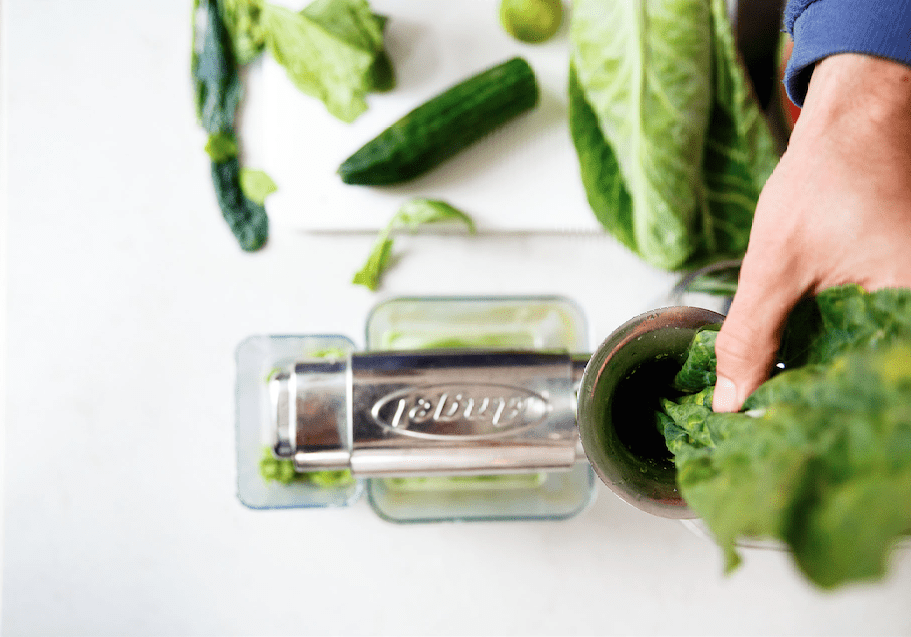Freshly pressed vegetable juice is a true health trend, and for good reason: drinking organic vegetable juices is a convenient way to consume a wealth of healthy nutrients. Chances are, you’re already aware of this. However, what you might not know is that the method used to extract the juice has a significant impact on its nutritional value. After thorough testing with various methods, we’ve determined that using a slow juicer yields the richest, best-tasting vegetable juice. Below, we outline the 5 key benefits of using a slow juicer:
1. Slow Juicing Yields Juice with More Nutrients
Most people drink freshly pressed vegetable juice for its health benefits. A freshly made juice can contain a substantial amount of vitamins, minerals, enzymes, fiber, and other nutrients. But how can you ensure that the nutrients present in your vegetables actually end up in your glass? Slow juicing is the answer. Since the machine slowly crushes everything, very few nutrients are lost. Moreover, no heat is involved, which can also impact the nutritional value. This way, you can enjoy all the goodness of your raw, organic vegetables.
2. Slow Juicing Enhances Nutrient Absorption
Our bodies don’t always find it easy to absorb the valuable nutrients from vegetables and fruits. These nutrients are typically enclosed within the plant or fruit cells, which usually have sturdy walls. A good slow juicer can break down these walls and facilitate the absorption of nutrients from the vegetable juice. This process is similar to what your teeth do when you chew your food.

3. Slow Juicers Minimize Food Waste Compared to Centrifugal Juicers
Food waste unfortunately remains a significant issue. A slow juicer is a great way to contribute to its reduction. A slow juicer can grind all parts of vegetables, fruits, herbs, and spices, so nothing goes to waste. Additionally, slow juicing produces more juice than other pressing methods. According to some sources, this can amount to about 35 to 50 percent more. This not only saves on the cost of purchasing vegetables but also reduces your vegetable and fruit waste. At Sap.je, the leftover pulp from pressing is given to animals on a local biodynamic farm. You can also incorporate your own pulp into a delicious vegetable omelet!

4. Slow Juicers Produce Tastier Juice
Not only do slow-juiced juices have higher nutritional value, but they also taste better. Due to the slow crushing of the ingredients, the flavor is much richer. The color and aroma are usually more intense as well. Another reason for this is that a slow juicer prevents almost all oxygen from coming into contact with the vegetables and fruits. As a result, there’s no oxidation, the process that causes things like apple cores to turn brown. This also means slow juicer juice has a longer shelf life, provided it’s stored refrigerated. You’ll also experience less settling of sediment in slow juicer juice.
5. Slow Juicers Preserve Nature’s Best
With slow juicing, you get colorful, fragrant, and flavorful juice, all without any unnatural additives like colorants, flavorings, or enhancers! All components of our slow juicer are made of stainless steel, so you don’t have to worry about plastic particles in your vegetable juice. This ensures you’re getting nothing but goodness with your daily juice. At Sap.je, we intentionally chose a slow juicer that could provide the highest quality and nutritional value. By bottling the juices in glass bottles, we ensure that the nutrients are better preserved and that nature is spared.

What’s the Difference Between a Slow Juicer and a Blender?
What Are the Benefits of Using a Slow Juicer?
– Slow juicing yields juice with more nutrients.
– Slow juicing enhances nutrient absorption.
– Slow juicers minimize food waste compared to centrifugal juicers.
– Slow juicers produce tastier juice.
– Slow juicers preserve nature’s best.
We elaborate on the benefits of a slow juicer extensively at the top of the page.

